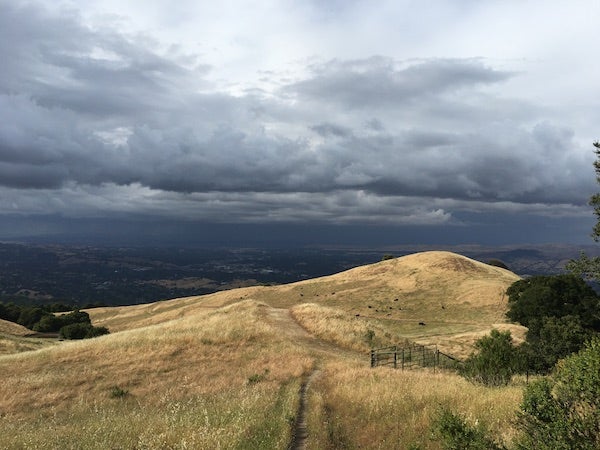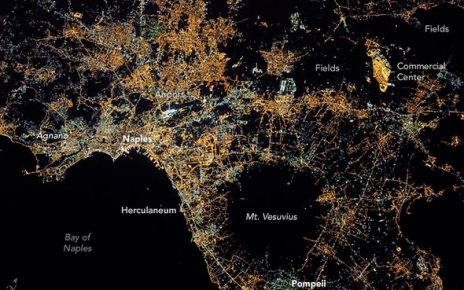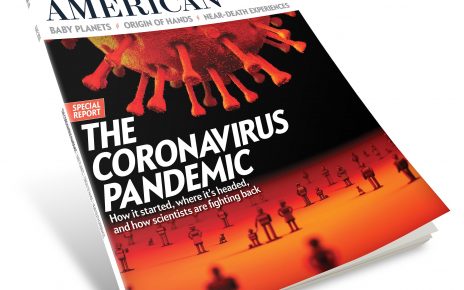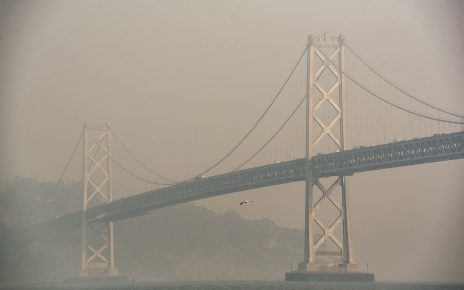I’ve been sheltering in place since mid-March. Days bleed into weeks, and weeks into months. Each morning I write code. I immerse myself in the world of computer programming. I compare temperature changes in satellite data and in the latest climate model simulations. I develop scripts to display these comparisons in maps, histograms and box-and-whiskers plots, in black and white and in vivid colors. I try to understand the similarities and differences between models and data. I try to understand whether newer versions of models outperform older versions. There is always something to learn, even from the simplest comparisons.
I find comfort in having a routine and a purpose in these uncertain, frightening times. Science is my lifeline. It tethers me to the reality of the complex, life-sustaining physical climate system. The science gives me great joy. Even though I’ll be 65 next month—officially crossing the threshold into “old dude” territory—I don’t feel old. Each day still brings the same childlike sense of wonder at the possibility of unearthing a small scientific nugget that others have missed. You never know what you’ll find.
Shelter-in-place afternoons are more prosaic. I write and respond to e-mails. I read, edit and review papers. I participate in phone calls and Zoom meetings with colleagues. If I’m ambitious I try to do a few bureaucratic chores. A supervisor reminds me that I’m delinquent on my mandatory computer ergonomics training and on my foreign travel training. The latter seems somewhat academic; any kind of business travel, foreign or domestic, is looking highly unlikely for the foreseeable future. I defer the foreign travel training with a mild sense of guilt.
In the early evening, I head out to Las Trampas Regional Wilderness. Getting out of my little apartment, if only for a few hours each day, is essential for my physical and mental health. I need to have my finger on the pulse of the seasonal cycle. I need to see the awakening of wildflowers after the rains of last month, the hillsides painted orange with iconic Californian poppies. I need to see sunlight filtering through the leaves and branches of old oak trees, backlighting patches of bright green grass, turning the simple into the sublime.
We all need things of beauty in our lives. Particularly now.
I take the Las Trampas ridge trail, eventually climbing to a point overlooking Mount Diablo, Danville and San Ramon. It’s wild up here today. A strong wind makes waves in the grass. There are half-closed poppies on either side of the trail, a monochromatic honor guard, bobbing and swaying in the wind gusts. I think of lines from an old poem by Wolfgang Borchert:
“Stell dich mitten in den Wind, glaub an ihn und sei ein Kind.
Lass den Sturm in dich hinein, und versuche gut zu sein.
Put yourself in the middle of the wind, believe in it and be a child.
Let the storm come inside you, and try to be good.”
Standing alone in the wind, in a restless sea of grass, I have the luxury of time. There is time to watch the strange spectacle of an almost empty Interstate 680 on a Saturday evening. Time to feel the sun and wind on my skin. Time to reflect on some of the things lost in the last few months.
One thing lost is human touch. There is only the memory of touch—the memory and residual warmth of fleeting, incandescent loves. The memory of my wife, sheltering in place in a different state. I do not know when I’ll see her again. I’ve lost her touch, the feel of her fingers gently clasping my hand as we walk around Minnesotan lakes.
I’ve also lost face-to-face human interactions with my family, friends and scientific colleagues. These interactions are all virtual now, and Zoom is the tenuous glue holding us together. But Zoom is no substitute for sharing the same room, the same space. Something vital is missing.
Nor are my masked, once-weekly visits to the grocery store an uplifting social experience. Fear is palpable in the checkout line. We are all masked now. Layers of gauze and cloth hide faces and muffle voices. Smiles and sadness are invisible. Only the eyes yield a window to the interior.
Standing in the wind on the top of my lonely vantage point, I think about the loss of lives in the pandemic. In our country, thousands died who did not have to die. Their deaths could have been avoided with leadership grounded in science rather than in magical thinking. In the United States, the spring of 2020 was not “our finest hour.” We passed the baton of global leadership to other countries—to countries like Germany, Denmark, South Korea and New Zealand, whose leaders paid attention to science and acted decisively to protect their citizens.
This failure of U.S. leadership in responding to COVID-19 was not unexpected. The current U.S. administration had already walked away from the Paris Climate Agreement, ceding leadership on climate change to more enlightened countries. The administration had already shown its disdain for science-based assessments of climate and health risks. Its primary focus was not on protecting its citizens from human-caused climate disruption, or on providing them with clean air and water.
This loss of leadership should be deeply concerning to all of us. America is no longer a textbook example of how a country should keep its citizens safe from harm. We are no longer a shining beacon of rationality or democracy for the rest of the world. In the middle of a global pandemic, we cut funding for the World Health Organization. And in the middle of global climate disruption, we opted out of the global community seeking to solve this problem.
Standing in the late-evening sun on the top of a nameless hill in northern California, it feels as if America’s time in the sun is fading. I hope that does not happen—but it will if we fail to elect better leaders in November 2020. Until then, I’ll remember the words of Borchert’s poem, let the storm in, and try to be good.




